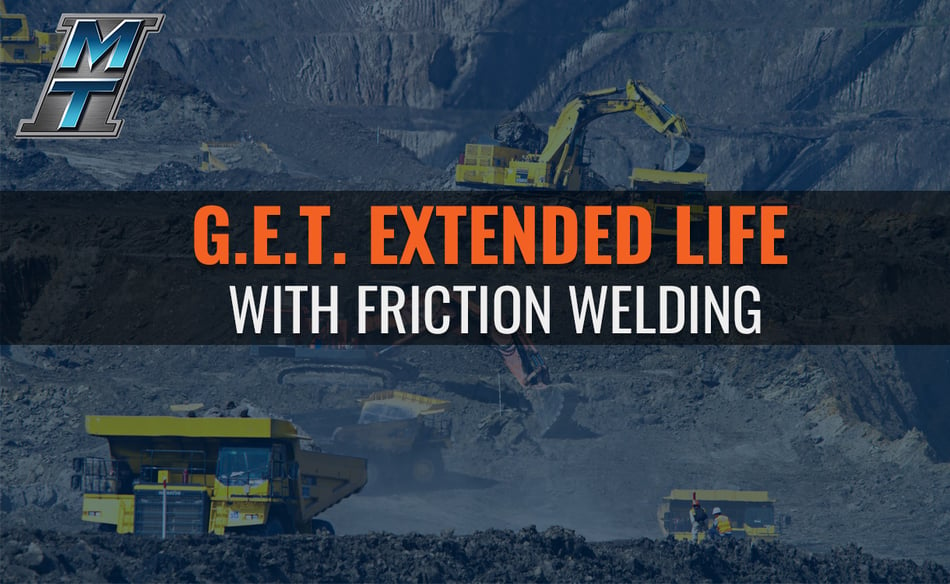
Oil sands production is a tough, demanding operation. The impact loads are earth-shattering, and the often brutally cold temperatures do little to provide any relief to the machinery operating in this highly abrasive environment. When oil sands crews perform heavy-duty tasks such as extracting bitumen, equipment capable of withstanding the harsh combination of conditions becomes a necessity, not an option.
To help protect and improve the longevity of their machines, mines have been relying on a joining method that ultimately prevents severe damage. However, there is another process that could offer even more protection while effectively driving down repair costs.
THE CURRENT PROCESS AND WHY IT DOESN’T WORK
For years, oil sands companies have been brazing tungsten carbide tiles onto parts of their equipment that come into direct contact with the workload. Think of the tiles like a shield.
While the tiles do, indeed, slow deterioration, it’s not a fail-proof method. Crews are often forced to halt or delay production when those tungsten carbide tiles separate during heavy use, forcing the line into repair.
The biggest flaw may lie within the brazing process itself.
Here’s why...
It’s believed residual stress from thermal expansion and contraction causes a vulnerable condition at the edge of the brazed material. (In this case, the tiles.) That’s because during the brazing process, the materials heat up and cool down at different rates, creating stress cracks at the bond line.
As you can imagine, a cracked tile isn’t going to provide nearly as much protection as a tile with no damage. A cracked tile is also more likely to detach while handling heavy loads, leaving the equipment vulnerable to direct contact and damage.
So how can we minimize or eliminate residual stress, keep the tiles in place and the equipment operational for longer periods of time?
FRICTION WELDING: A PROMISING SOLUTION
In most cases, friction in the form of low and high-stress abrasion causes wear. But friction welding can actually help decrease wear.
By using Linear Friction Welding in an additive manufacturing process, we can join tungsten carbide tiles onto mining equipment with a stress-free superior joint.
HOW WE DO IT
For the tungsten carbide tiles to be more effective, they need to be forged with a relatively low temperature, which happens to be one of the biggest benefits of friction welding.
In the Linear friction welding process, the materials never reach the melting point. Instead of melting, they plasticize, creating a stronger, more durable bond for this application.
By implementing Linear friction welding, mining companies wouldn't need to replace the tiles as frequently and would effectively cut down on their number of trips to the repair shop.
ENDLESS POSSIBILITIES
Friction welding can help extend the service life of every part that touches the ground. While the possibilities are virtually endless, here are some parts that could see improvements through friction welding:
- Shovel G.E.T.
- Grader Edges
- Hopper Tile
- Primary Crushers
- Secondary Sizer
- Tertiary Sizer
- Grouser Bar
- Impact Hammer
Oil sands processing is just one facet of the mining industry that could benefit from friction welding. We’re constantly working with mining companies to develop innovative solutions to their durability problems.
Our LF35-75, located at LIFT in Detroit, is ideal for mining because the machine has the largest tooling envelope of any Linear friction welder in the world. The LF35-75 can help create the ideal "shield" that mining companies have been searching for.
Take a look at this state-of-the-art machine here:
If you’re ready to learn how friction welding can improve your process, please contact us.
About MTI
MTI has established itself as a leader in friction welding, including Rotary Friction, Linear Friction, Low Force Friction, and Friction Stir Welding technologies. In addition to contract manufacturing services, MTI has delivered machines to Boeing, GE, Rolls- Royce, Pratt and Whitney, Federal Mogul, and many of their tier one suppliers. A family owned business founded in 1926, MTI employs 185 people in their South Bend, United Kingdom, and Slovakia locations.
For more information on MTI and its family of world-class friction welding technologies, visit www.mtiwelding.com.
Twitter: @mtiwelding
LinkedIn: https://www.linkedin.com/company/manufacturing-technology-inc
 MTI UK
MTI UK  FWT
FWT